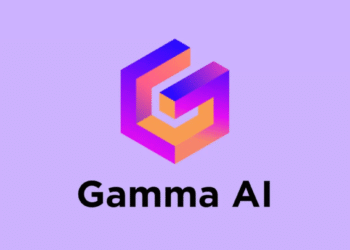The new Huawei Mate 30 Pro will not come with Google Play — or any Google services, for that matter — when it’s released next month. In an interview with selected journalists following the phone’s launch, Huawei Business Group Chairman Richard Yu said people who buy the phone will be provided with alternatives through Huawei’s own App Gallery store, and suggested people may find other methods to install their favourite apps.
He also said the company is being forced into this situation by the U.S. government’s ongoing ban.
The phone will ship without Google services entirely, and while it does still have Android 10 installed, it’s an open-source version known as AOSP. Huawei’s own EMUI 10 user interface is placed over the top.
“We cannot install Google Play yet,” Yu explained. “Next month, the phone will ship internationally, and people will have to use other app stores.”
Huawei is preparing to launch the phone in the Asia Pacific region and parts of Europe but has not confirmed exactly which European countries will get the new Mate 30 series. A release in the U.K., a strong market for Huawei, is also still in doubt. When asked about carrier support, Yu responded that negotiations are in progress, and he is positive about the outcome, saying the phone will “still be sold by carriers. Consumers love our products, so they sell very well.”
Despite the lack of Google’s apps, he still expects the Mate 30 series to sell very well, predicting sales of 20 million at least. There is also strong evidence the company is recovering from a dip in sales earlier this year. During the presentation, figures were shared that showed smartphones sales had risen 26% between January and August this year, a trend Yu says will continue.
Forced into the situation
Huawei’s inability to add Google Play and other Google services like Google Pay is the result of a continued ban by the U.S. government, which prevents U.S. businesses — including Google — from working with Huawei. The Mate 30 Pro has been built without the involvement of American companies.
Yu spoke at length about the situation and his feelings around it.
“We have been forced into the situation,” he said.
He described Huawei as a globalized, open, and transparent company being used as a bargaining chip in political gameplay, and warned that the ban had the potential to destroy the industry, and that it’s harmful to both sides.
“We want to continue with the Google partnership. If the ban isn’t lifted, we will have to use our own software,” he said, referencing HarmonyOS. Huawei has postponed using HarmonyOS on a smartphone in the hope it could continue using Android. He pledged to continue with Android AOSP for now, but said HarmonyOS may now come next year if the situation does not change.
Forging ahead
Huawei is not a company to sit back and let things happen, and it’s pushing forward not just with HarmonyOS, but with building up its own App Gallery store’s content too. In addition to a $1 billion development fund, it is offering developers higher commissions on apps sold through the App Gallery than both Google and Apple do for their respective stores.
However, without Google services like the Play Store, or familiar apps like Google Maps, Facebook, WhatsApp, and many others, the phone will be a tough sell to those who rely on them to enhance their smartphone ownership. Until the trade war between the U.S. and China ends, or an agreement between U.S. companies and Huawei is reached, the situation cannot be resolved.
“I believe it will finish,” said Yu positively, but offered no insight into whether it would be a conclusion favourable to Huawei. Should that happen, he said laughingly that it would only take “one night” for software updates to reinstate Google services on Mate 30 phones.
Describing the entire situation as damaging to both U.S. and Chinese companies involved, Yu resolutely said: “We cannot stop our business,” a statement that Huawei has stood by since the very beginning.



